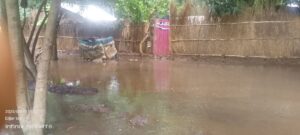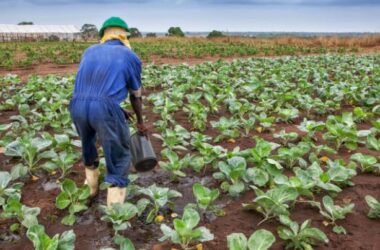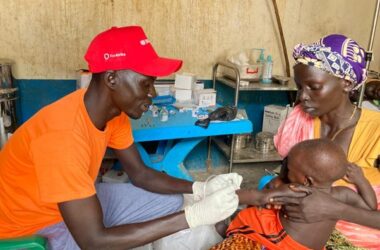
By Manas James Okony
Thousands of residents in the Greater Pibor Administrative Area’s (GPAA) Pochalla South County have been left homeless and hungry as severe floods hit the area.
Reports indicate that over 8,000 people are affected, with Pochalla Town, Bat-Agela, Achari, Tierlul, and Okadil among the worst-hit localities.
Pochalla is an area historically prone to flooding, situated along the border with Ethiopia. The area frequently experiences severe flooding due to the overflow of the Akobo River, which originates in the highlands of Ethiopia.
This river regularly inundates Pochalla and other low-lying areas nearby. The current flooding began last week but has its roots in a longstanding pattern of seasonal rains combined with the impact of climate change, which has intensified weather events across the region.
In interviews with No. 1 Citizen Daily Newspaper, several residents expressed their suffering due to these floods.
One resident, Amati Ochan, appealed for intervention.
“My home is affected, and the entire county is struggling. The water level reached my waist; one has to remove their clothes to get to work,” he stated. “Our people are suffering. With more rains expected, the situation will only worsen.”
Another resident, Margaret Akule Nyigwo, decried her plight and also called for assistance.
“My home is severely flooded. Many people have been displaced to schools. However, I remain in my house surrounded by floodwaters because the school is remote, and I fear for my children’s safety.” She added, “Our means of livelihood are also destroyed, with maize crops standing in water before harvest.
This level of flooding has never been experienced before. We urgently appeal for intervention.”
Jacob Werchum Jouk, the GPAA information minister, spoke about the alarming situation:
“Pochalla is devastated by the floods, and the situation continues to worsen. Villages are submerged, displacing thousands, with 158 households accommodated in school buildings,” he stated. “We therefore appeal for intervention. Homes and farms are destroyed in both Pochalla North and South counties, leaving people cut off from essential services and support.”
South Sudan has a history of devastating floods, a phenomenon exacerbated by climate change, deforestation, and poor infrastructure. The country experiences a distinct wet season, typically from May to October, during which heavy rainfall can lead to swollen rivers and flash floods.
Areas like Pochalla, with their geographic vulnerability, often bear the brunt of these natural disasters.
Over the past years, floods have repeatedly displaced communities, destroyed homes, and disrupted food production, pushing families into precarious situations where they struggle to meet basic needs.
In recent years, the severity and frequency of floods in South Sudan have increased alarmingly. Between 2020 and 2022, the United Nations reported prolonged flooding that left approximately 900,000 people displaced and caused significant agricultural losses. Infrastructure damage has also compounded the challenges, disrupting transportation and access to markets, healthcare, and education.
The compounded effect of flooding and political instability creates a dire humanitarian crisis, necessitating urgent international and local responses.



